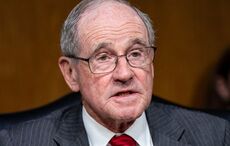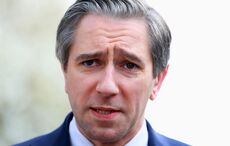Steve Bannon, Trump's former Chief Strategist, thinks that it's the 25th amendment that will finally catch up with his former boss and see him on his way out of the White House.
An explosive new book about Trump's first year in office quotes Bannon – once Trump's pet advisor before exiting the White House in August – as calling the odds on whether Trump will be able to complete a four-year term as president.
Bannon “was openly handicapping a 33.3 percent chance of impeachment, a 33.3 percent chance of resignation in the shadow of the 25th amendment and a 33.3 percent chance that he might limp to the finish line on the strength of liberal arrogance and weakness,” writes Michael Wolff in 'Fire and Fury: Inside the Trump White House.'

The 25th amendment has been raised in connection with Trump's mental fitness to serve as president, with Democrats and Republicans alike calling for an examination of his mental health after his recent tweet taunting North Korea leader Kim Jong Un about the size of his "nuclear button."
North Korean Leader Kim Jong Un just stated that the “Nuclear Button is on his desk at all times.” Will someone from his depleted and food starved regime please inform him that I too have a Nuclear Button, but it is a much bigger & more powerful one than his, and my Button works!
— Donald J. Trump (@realDonaldTrump) January 3, 2018
So, what is the 25th amendment, how does it work, and where did it come from?
The amendment was written by Professor John Feerick, a highly respected lawyer and the former Dean of Fordham Law school. Feerick is the son of Mary Boyle, who arrived from Mayo in 1928, and John Feerick, who arrived in the US a year later. They were each looking to escape the poverty of the Mayo farmlands, and had the fortune to meet each other in a dance hall on the other side of the Atlantic.
One week before the Kennedy assassination in November 1963 Feerick had written a scholarly essay on presidential succession. When Kennedy died and it became apparent there was no provision for a Vice President, Feerick’s article became the focus of legal scholars politicians and public alike.
John Feerick with President Lyndon Johnson and Congressman Richard Paff at the passage of the 25th amendment ceremony. 
Suddenly the 25-year-old kid from the Bronx found himself advising the American Bar Association as it hurriedly determined what action should be taken on presidential succession.
The result was the 25th amendment, which allows the President to appoint a Vice President whenever that office falls vacant; allows an incapacitated President to step aside temporarily without forfeiting the office; and – this is the part subject to interest today – provides a mechanism whereby the Vice President, upon a majority vote of the Cabinet, may declare the President incapacitated and serve as Acting President until he recovers.
So, in Trump's case, it would take VP Mike Pence and a majority of Trump's cabinet to set the amendment into motion.
This sounds highly unlikely, but the discord Wolff's book paints within the White House is significant if true.
As Politico reported, following Trump's "nuclear button" taunts to North Korea, Bill Kristol, editor at large of The Weekly Standard and one of Washington’s leading conservative voices, tweeted:
“I trust @VP has asked his Counsel to prepare a draft document transferring power in accord with Sec. 4 of 25th Amendment in case it’s suddenly needed, & that he’s discussed this with COS Kelly.”
Most of @POTUS's craziness seems so far to have been confined to speech not deeds. But I trust @VP has asked his Counsel to prepare a draft document transferring power in accord with Sec. 4 of 25th Amendment in case it's suddenly needed, & that he's discussed this with COS Kelly.
— Bill Kristol (@BillKristol) January 3, 2018
Trump, however, turned the mental health line of questioning back on Steve Bannon, writing in a statement "When he was fired, he not only lost his job, he lost his mind."




Comments